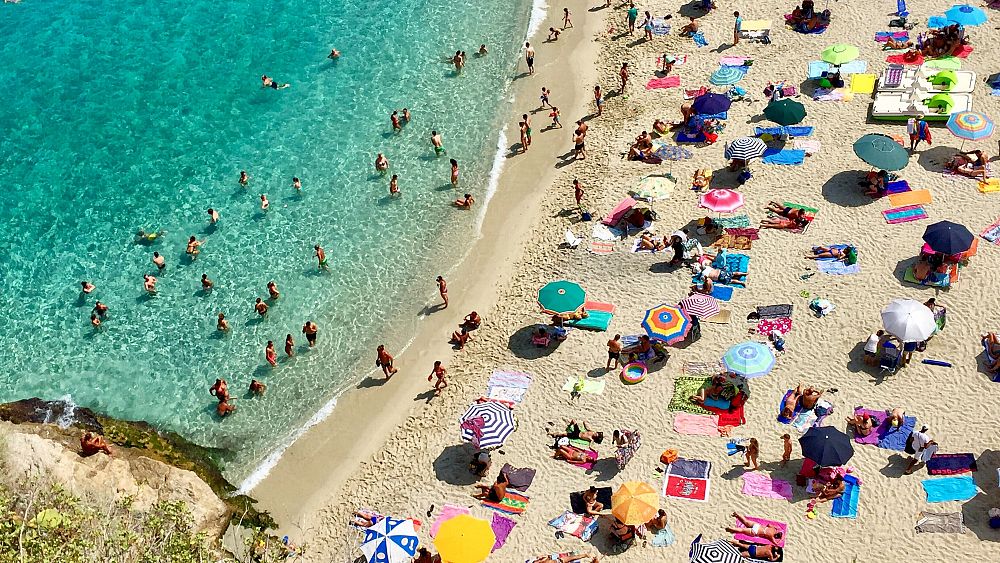August is officially holiday season in Italy. While tourists pile into the cities like Venice and Rome, Italians are making a beeline for the sea.
The summer beach holiday is sacred and many businesses across the country shutter for weeks.
The break culminates on 15 August with Ferragosto, a major national holiday.
If you are travelling to Italy during the festivities, there are plenty of events to get involved in.
But it is also worth knowing the places to avoid if want to escape the crowds.
What is Italy’s Ferragosto holiday?
The Ferragosto celebration on 15 August marks the height of summer in Italy.
The festival originates from the Feriae Augusti, the festival of Emperor Augustus established in 18 BC. Under his rule, 1 August was declared a rest day for workers in the agricultural sector after the labour of the previous months.
In around 5 AD, the Catholic Church felt the need to put a religious spin on the festivity and moved the date to 15 August, the celebration of the Assumption of the Virgin Mary.
Until recently, almost all shops and industries in Italy shut down for the whole of August and there was a mass exodus to the sea.
Now, businesses limit closures to around two weeks, but it remains one of Italy’s most important festivities.
How do Italians celebrate Ferragosto?
The most traditional way to celebrate Ferragosto is to escape to the beach. Many households decamp to the seaside for the whole of August and the 15th marks the climax of the holiday.
It is customary to have a big barbeque or al fresco lunch on the beach with family and friends on the day of Ferragosto.
This practice has its origins during Italy’s Fascist regime. In the 1920s, the government organised Ferragosto excursions to the beach. They set up special discounted rail journeys to the seaside so that even the working classes could afford a trip.
However, since the organised excursions didn’t involve food, it became customary to bring a packed lunch. This has evolved into an extravagant meal often involving surprisingly heavy fare like pasta bakes and stuffed vegetables.
Is everything in Italy closed in August?
While once it would have been a challenge to find a restaurant open in a city around Ferragosto, this is no longer the case.
Many businesses still shut but an increase in summer visitors means eateries, bars, gelaterie and tourist attractions normally remain open.
In fact, a number of cities now hold events throughout August to cater to the rise in tourism. Some, like Rome and Bologna, set up outdoor cinemas while there is a jazz festival in the Apulian city of Bari and an opera festival in Macerata in Le Marche.
On 27 August, Melpignano in Puglia hosts the Night of Taranta, a festival celebrating traditional folk music and dance. In Siena, the famous Palio horse race takes place on the 16th.
Most major tourist attractions remain open including the Uffizi gallery in Florence and the Ducal Palace in Venice. One of the few exceptions is the Vatican Museums, which are closed on 15 August.
How not to travel in Italy in August
The biggest travel mistake to make in August is driving. With people heading back and forth from the sea, Italy’s roads are a nightmare around Ferragosto.
Motorways become much busier and smaller roads that lead to coastal holiday hotspots often see major traffic jams.
The Italian government issues travel warnings each year to help motorists avoid peak times. It publishes a calender that colour codes days in terms of traffic intensity.
Yellow signals heavy traffic, red indicates heavy traffic with possible critical conditions and black means critical levels of traffic.
The weekends are often categorised as red while the mornings of 12 August currently has a black warning.
In general, authorities advise against driving on Fridays and Monday mornings.


